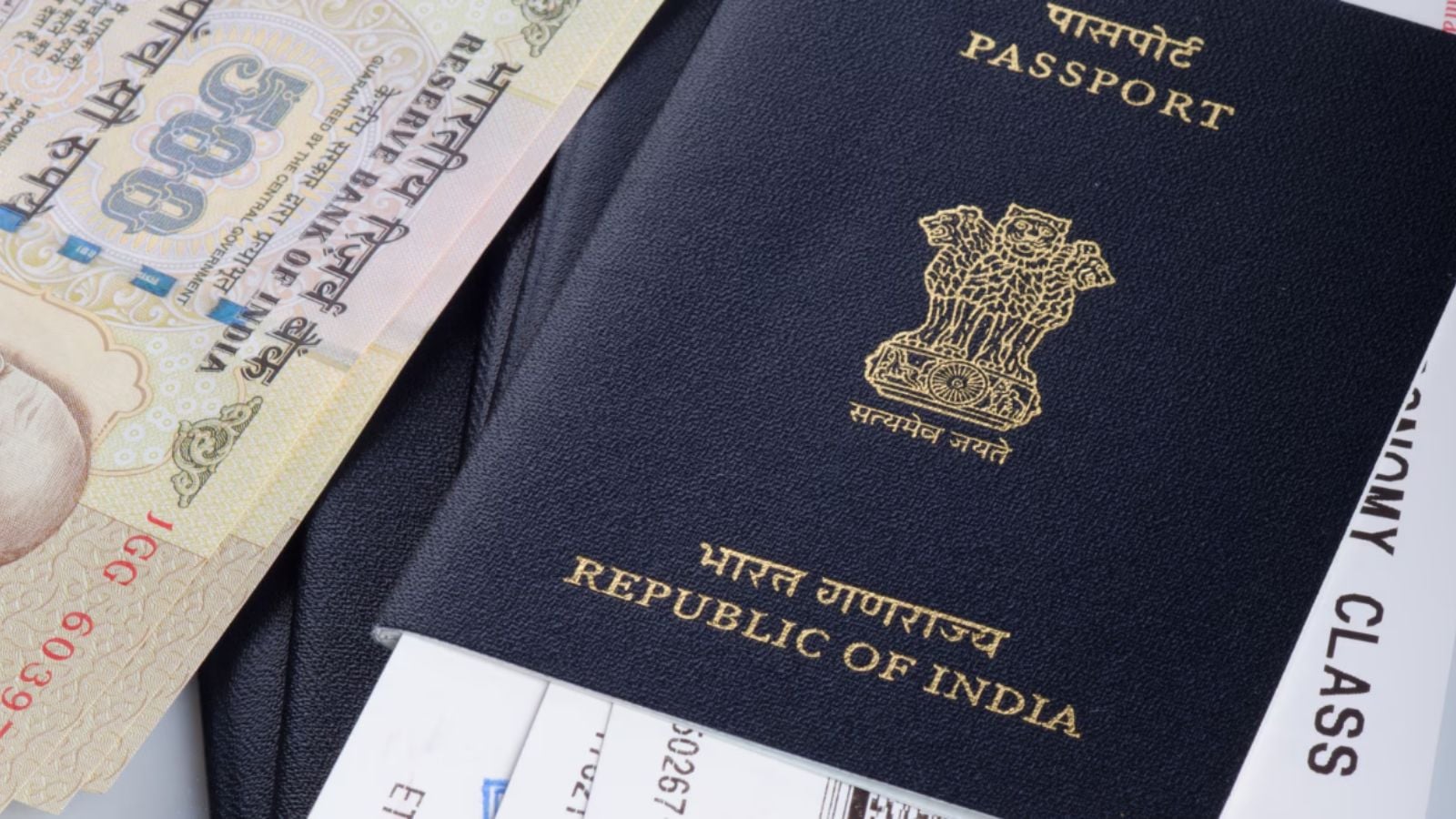Stay updated with the latest - Click here to follow us on Instagram
e-Passport in India 2025: Know the launch date, how to apply, eligibility, fees, registration process & benefits
e-Passport in India 2025 Launch date, fees, registration process, apply online: Know about the e-Passport Seva launch, benefits like enhanced security, application process, eligibility, and fees. Your complete guide to the new digital passport.
 Indian chip-based e-Passport 2025: By facilitating automated identity verification procedures and simplifying their interactions with immigration authorities, the Indian e-Passport will make travel easier for Indian nationals. (Representational image)
Indian chip-based e-Passport 2025: By facilitating automated identity verification procedures and simplifying their interactions with immigration authorities, the Indian e-Passport will make travel easier for Indian nationals. (Representational image)e-Passport in India 2025 Launch date, fees, registration process, application: At the 13th Passport Seva Divas, External Affairs Minister S. Jaishankar revealed significant developments in the Passport Seva Programme (PSP) and affirmed the national adoption of e-Passports.
In a post on X, Jaishankar praised passport officials both in India and overseas, noting their contribution in what he described as a “remarkable transformation” in service delivery over the previous decade.
The e-passport initiative, part of the Passport Seva Programme (PSP) Version 2.0, was launched as part of a pilot program in India. Regional Passport Offices in Nagpur, Bhubaneswar, Jammu, Goa, Shimla, Raipur, Amritsar, Jaipur, Chennai, Hyderabad, Surat, and Ranchi are now equipped to issue e-passports, with plans for further expansion.
The Minister announced the nationwide commencement of the Passport Seva Programme Version 2.0, which incorporates advanced and emerging technologies that will enhance system efficiency and transparency.
Greetings to all Passport Authorities in India and abroad on the occasion of the 13th Passport Seva Divas.
Your commendable efforts, guided by ‘Seva, Sushasan and Garib Kalyan’, are instrumental to ensuring ease of travel, deepening access to global workplace and empowering the… pic.twitter.com/pDn53sjyyJ
— Dr. S. Jaishankar (@DrSJaishankar) June 24, 2025
e-Passports in India: What is an e-Passport?
An Indian ePassport will be a paper and electronic passport which includes a Radio Frequency Identification (RFID) Chip and an antenna implanted in the passport’s inlay and holds the passport holder’s personal and biometric information. It will be immediately recognised as a little supplementary gold colour insignia printed beneath the passport’s front cover.
e-Passports in India: Why is having an e-Passport beneficial?
The key benefit of the ePassport is the increased ability to safeguard the integrity of the passport holder’s data. It will have the data printed on the booklet as well as digitally signed in the electronic chip, which can be securely authenticated by immigration officials, protecting the passport from forgery and potential fraudulent activities such as fake passports, while confirming its authenticity at border controls.
e-Passports in India: Fees
The cost of an e-passport is expected to be the same as an ordinary Indian passport.
| Passport Type | Pages | Validity | Fee (Normal) | Fee (Tatkal) |
| Ordinary Passport | 36 | 10 years | ₹1,500 | ₹3,500 |
| Ordinary Passport | 60 | 10 years | ₹2,000 | ₹4,000 |
| Minor Passport | 36 | 5 years | ₹1,000 | ₹3,000 |
Source: Clear Tax
e-Passports in India: How to apply for an e-Passport?
To get an e-passport, one can go to the official Passport Seva platform and follow the steps mentioned below:
Step 1: Go to the official Passport Seva website: https://services1.passportindia.gov.in/psp.
Step 2: New users have to sign up for an account, and existing users can log in using their credentials.
Step 3: Fill in the e-passport application by providing accurate personal and travel information.
Step 4: Now choose the nearest Passport Seva Kendra (PSK) or Post Office Passport Seva Kendra (POPSK) as per your convenience.
Step 5: Payment of the applicable charges, which is the e-passport fee, has to be made through available payment options.
Step 6: Schedule an appointment by selecting a date and time slot for the selected service centre.
Step 7: Visit the PSK or POPSK at the scheduled time for biometric capture and document verification.
e-Passports in India: Is it obligatory for existing valid passport holders to replace with an ePassport?
No, all passports issued by the Government of India will stay valid till the expiry date. Citizens who apply at a Passport Office that is technically capable of issuing ePassports will receive their ePassport. The phased rollout of the ePassport to all Passport Offices across India may take a few months.







